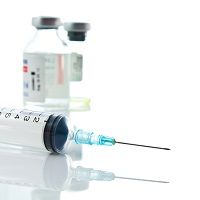Article
HHS Backs Development of Experimental Ebola Vaccine
Author(s):
With the Ebola outbreak hitting closer to home than ever before, the US Department of Health and Human Services announced it is backing the "accelerated" development of a vaccine for the deadly virus.

With the Ebola outbreak hitting closer to home than ever before, the US Department of Health and Human Services (HHS) announced it is backing the “accelerated” development of a vaccine for the deadly virus.
A press release from the department announced a contract with Profectus BioSciences Inc. to work with the Office of the Assistant Secretary for Preparedness and Response and the Biomedical Advanced Research and Development Authority (BARDA) on the development of the vaccine. The contract, valued at $5.8 million in funding for the development, also says BARDA will provide “subject matter expertise and technical assistance, to further develop an experimental Ebola vaccine.”
Under the contract, Profectus will develop the vaccine for future safety and clinical trials on animals and humans. There is also a provision for the contract to be extended to a total of 13 months, which would bring the value to $8.6 million.
“We are pushing hard to advance the development of multiple products as quickly as possible for clinical evaluation and future use in preventing or treating this deadly disease,” said BARDA Director Robin Robinson, MD, in the statement. “Our goal is to close the global gap in vaccines and therapeutics needed to protect the public health from Ebola as highlighted by the epidemic in West Africa.”
This represents extends research on the vaccine that was started by the National Institute of Allergy and Infectious Diseases (NIAID), a branch of the National Institutes of Health, and prior animal studies conducted by the Department of Defense (DoD).
The HHS statement noted that in the DoD tests, “a single dose of the experimental Ebola vaccine provided 100% protection in non-human primates.”
Along with this vaccine, the NIAID is also supporting the development of a vaccine with GlaxoSmithKline which is in Phase 1 clinical trials, and one developed by the Public Health Agency of Canada and licensed to NewLink Genetics Corp. That vaccine is expected to begin phase 2 clinical trials next year.
As work on the development of a vaccine continues, the HHS statement said work is also being done to speed up production of an eventual vaccine. That effort is being driven by the Centers for Innovation in Advanced Development and Manufacturing, as well as BARDA’s Fill Finish Manufacturing Network so that any vaccine that gains approval can be produced in large quantities to help as many people as possible.
These steps, the statement noted, are not the end of the process. The agency is also “seeking additional proposals for the advanced development of antibody treatments, antiviral drugs, and vaccines against the Ebola and Marburg viruses, both of which cause viral hemorrhagic fever.”


